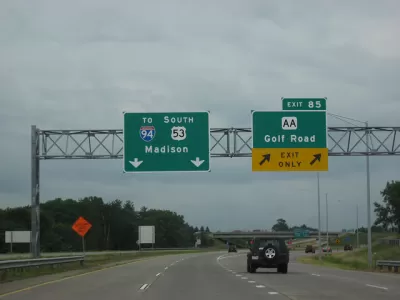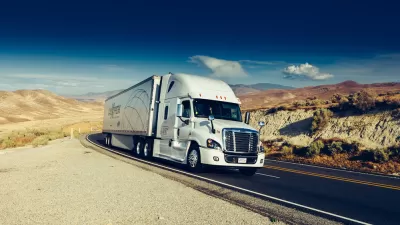Wisconsin legislators have voted to continue steep borrowing to pay for needed road repairs, while calls to increase the state’s gas tax grow louder.

Steven Walters of Urban Milwaukee reports that Wisconsin’s Joint Finance Committee—comprised of both Republicans and Democrats—have voted to borrow an additional $350 million to fund highway maintenance and construction projects. Critics of the vote have called for a long range strategy for funding highway improvements, including raising the State’s gas tax and/or car registration fees.
As a result, major projects like widening I39/90 between Madison and Beloit will be delayed by only one year, instead of two.
But there’s a cost: 21-cents out of every $1 in Wisconsin gas taxes and vehicle registration fees will soon go for debt service payments on debt interest and principal.
In just 10 years, debt service on transportation projects has doubled – from 10.3 percent to 20.7 percent, according to the Legislative Fiscal Bureau (LFB).
Walters writes that State Senator Janis Ringhand has defended the borrowing as necessary to address what the US Department of Transportation has cited as "poor or mediocre conditions" for 71 percent of Wisconsin’s roads.
FULL STORY: 21% of Gas Tax Will Go to Repay Debt

Maui's Vacation Rental Debate Turns Ugly
Verbal attacks, misinformation campaigns and fistfights plague a high-stakes debate to convert thousands of vacation rentals into long-term housing.

Planetizen Federal Action Tracker
A weekly monitor of how Trump’s orders and actions are impacting planners and planning in America.

In Urban Planning, AI Prompting Could be the New Design Thinking
Creativity has long been key to great urban design. What if we see AI as our new creative partner?

Chicago’s Ghost Rails
Just beneath the surface of the modern city lie the remnants of its expansive early 20th-century streetcar system.

Baker Creek Pavilion: Blending Nature and Architecture in Knoxville
Knoxville’s urban wilderness planning initiative unveils the "Baker Creek Pavilion" to increase the city's access to green spaces.

Pedestrian Deaths Drop, Remain Twice as High as in 2009
Fatalities declined by 4 percent in 2024, but the U.S. is still nowhere close to ‘Vision Zero.’
Urban Design for Planners 1: Software Tools
This six-course series explores essential urban design concepts using open source software and equips planners with the tools they need to participate fully in the urban design process.
Planning for Universal Design
Learn the tools for implementing Universal Design in planning regulations.
planning NEXT
Appalachian Highlands Housing Partners
Mpact (founded as Rail~Volution)
City of Camden Redevelopment Agency
City of Astoria
City of Portland
City of Laramie





























